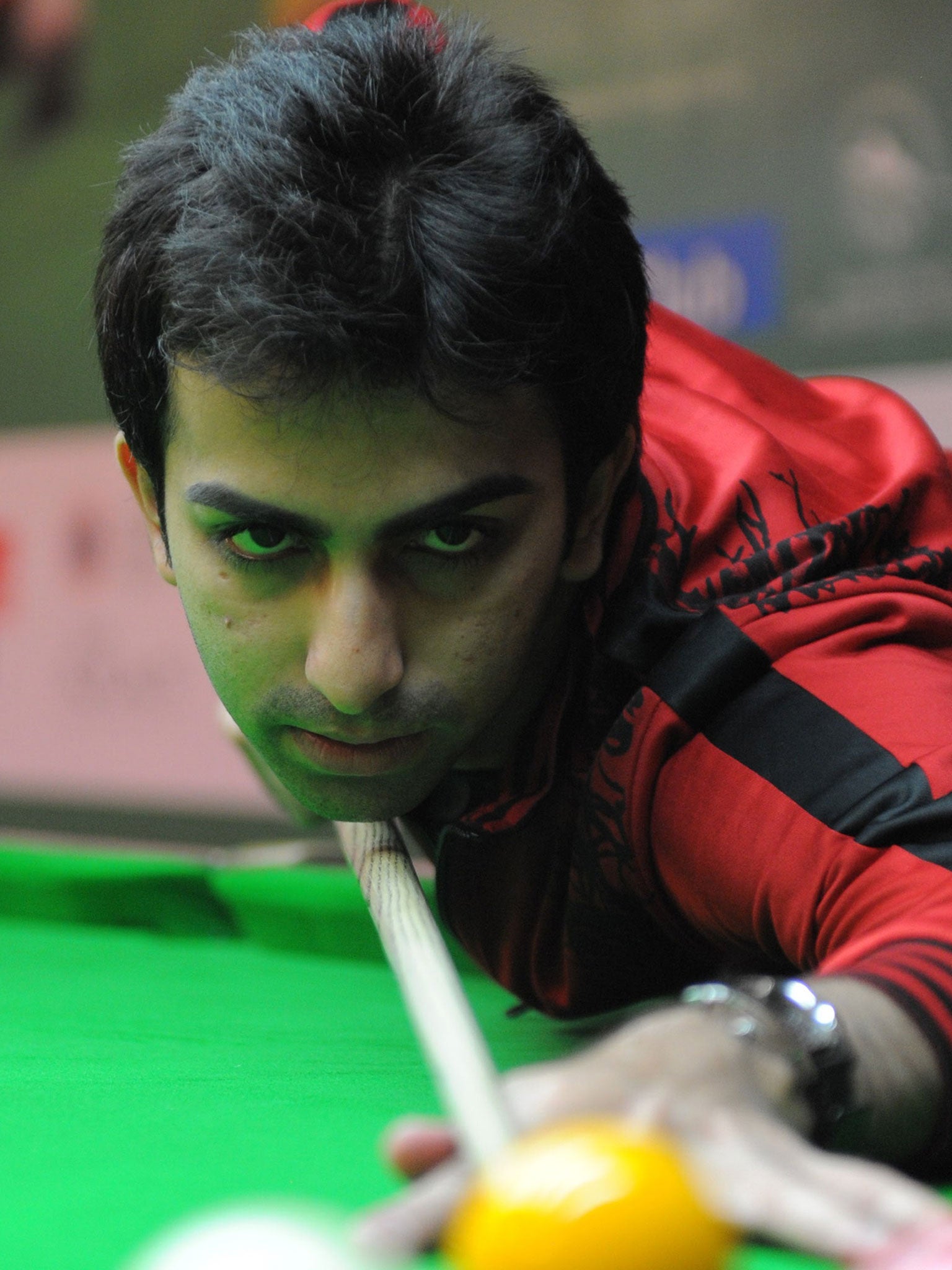Snooker: Sport heads back to roots for India expansion
Barry Hearn leads search for 'new China' by staging first top-rank event in New Delhi this week

Your support helps us to tell the story
From reproductive rights to climate change to Big Tech, The Independent is on the ground when the story is developing. Whether it's investigating the financials of Elon Musk's pro-Trump PAC or producing our latest documentary, 'The A Word', which shines a light on the American women fighting for reproductive rights, we know how important it is to parse out the facts from the messaging.
At such a critical moment in US history, we need reporters on the ground. Your donation allows us to keep sending journalists to speak to both sides of the story.
The Independent is trusted by Americans across the entire political spectrum. And unlike many other quality news outlets, we choose not to lock Americans out of our reporting and analysis with paywalls. We believe quality journalism should be available to everyone, paid for by those who can afford it.
Your support makes all the difference.Sheffield is synonymous with snooker because of the World Championship, but what many people might not realise is that the sport's birthplace is in fact in India.
So it is perhaps fitting that the green-baize game returned to its roots this week with the first-ever ranking event staged in the country, the Indian Open in New Delhi. Barry Hearn, the World Snooker chairman, has played a major role in rejuvenating a sport which originated some 138 years ago in Jubbulpore when played by the British armed forces and looked like it was slowly dying until his involvement.
In little over three years since he took over, Hearn is rightfully delighted with the sport's progress. But, ever the optimist, the Leyton Orient owner believes he has discovered a new and exciting market for snooker in India, a country with a 1.2billion population.
"There's been a lot of interest for a tournament in India, so we've tried to embrace that demand," said Hearn. "The early signs are promising. The crowds have been good this week and we've got 64 of the world's best players out there, so that's a good start. But it's only a start. It's new territory like it has been for a lot of other countries we've tried to develop the game in.
"The baby is just toddling at the moment and we want it to reach adulthood. It's going to take time, but we're confident we can get there.
"If you look at what we've achieved in China, where there is incredible demand, then who knows whether India could become the new China?"
Across the world there are now 77 different countries who televise snooker, with a global viewing audience which has swelled to over 450 million. Hearn is understandably optimistic for the future, but is prepared to grow slowly to make the gains sustainable.
"There's been a lot of interest from sponsors for the tournament and there's two Indian broadcasters who are covering the event," he added. "And there's live streaming of the matches. When I first went to China in 1982 snooker was just starting out and it took 10 years before it got going.
"I've had a business plan from day one and that was to grow the game. They [World Snooker] were going from a disaster to a disaster and papering over the cracks. But now there's lot of opportunities commercially and I genuinely believe this is the tip of the iceberg.
"We're got plans to add the Middle East to the calendar and hopefully Canada one day."
This week's tournament offers a total prize pot of £300,000, with the eventual winner walking away with a £50,000 first prize. For Australian Neil Robertson, the former world and Masters champion, the expansion into India is a true sign of why the sport continues to attract new audiences.
"When snooker first went to China it was relatively small, and these days there are more tournaments there than anywhere else and the prize money is huge," said Robertson. "It would be fantastic to see the same kind of thing happen in India and having seen this week how much the fans love it here, I think it could happen.
"A lot will depend on the two Indian players, Pankaj Advani and Aditya Mehta, because the game took off in China when Ding Junhui started winning tournaments. The fans need a role model."
Mehta beat former world and UK champion Peter Ebdon in his first-round match and followed up that success by beating Mark Williams – another former world champion. He faced Advani in the quarter-finals and edged home 4-3 last night to book an encounter with Scotland's Stephen Maguire in the last four.
Geeth Sethi, a former Indian snooker professional, played a key role in helping establish this year's tournament. Sethi, who set up the Olympic Gold Quest – a foundation for the promotion of sport in India – added: "It was a dream come true to have a ranking event in India, but it's just phenomenal that it's actually happened."
Join our commenting forum
Join thought-provoking conversations, follow other Independent readers and see their replies
Comments